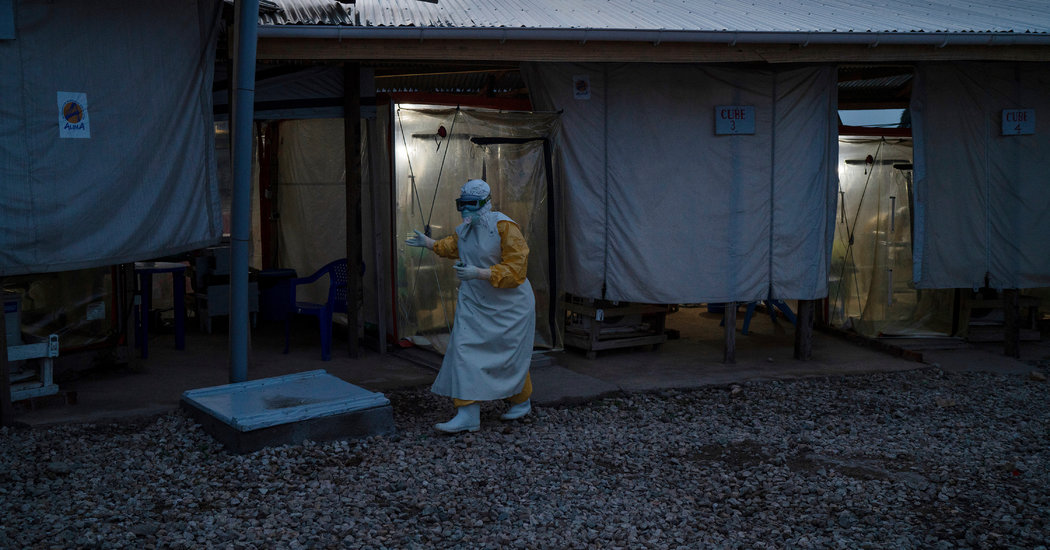
GOMA, Democratic Republic of Congo — The yearlong Ebola outbreak in the Democratic Republic of Congo has hit what officials are calling a milestone: more than 3,000 confirmed and probable cases and a death toll above 2,000, according to government data released on Friday.
The outbreak, Congo’s 10th, is the second-worst epidemic of the virus on record. It is also the first in the densely forested hillside provinces of North Kivu and Ituri, where militia-led violence and ethnic killing have undermined security in certain areas for decades.
Despite the development of an effective vaccine and treatments, health workers have struggled to control the spread of the disease in remote and conflict-hit areas of the eastern part of the country. Many residents are wary of the response effort, and responders are battling to overcome community mistrust and security problems.
“For the treatments to work, people need to trust them and the medical staff who administer them,” the International Federation of the Red Cross said in a statement. “This will take time, resources and a lot of hard work.”
In neighboring Uganda, meanwhile, -officials said on Friday that a young girl who had tested positive for Ebola after crossing the border, the fourth case imported from Congo since June, had died.
Health officials were working to arrange for her body to be taken back home for burial. Her mother was to be put into isolation and also repatriated, the BBC reported.
The government data in Congo showed Ebola deaths reaching 2,006 and cases numbering 3,004. Only the 2013-16 Ebola outbreak in West Africa has been deadlier than the current outbreak. More than 11,300 people died then, out of 28,000 infected.
Health workers confirmed the first cases in South Kivu province on Aug. 16. Soon after, a woman contracted the virus in a remote, militia-controlled territory in North Kivu, hundreds of miles away from other known cases.
“We are fighting literally with all partners on the ground to reach people, to reach contacts, to identify cases as early as possible,” a spokesman for the World Health Organization, Christian Lindmeier, said on Tuesday.
The authorities have come up against new fronts in their fight to contain the epidemic, fanning fears that the spread of the disease could accelerate.
Last week, the health organization voiced concern about the widening geographic reach of the disease, but confirmed the virus had not gained a foothold in the major city of Goma, where four cases were recorded in July and early August.
“Two thousand deaths means that there is a problem,” said Timothée Buliga, a Goma resident. “We need to reach the point where we reject Ebola, say no and eradicate it definitively.”

